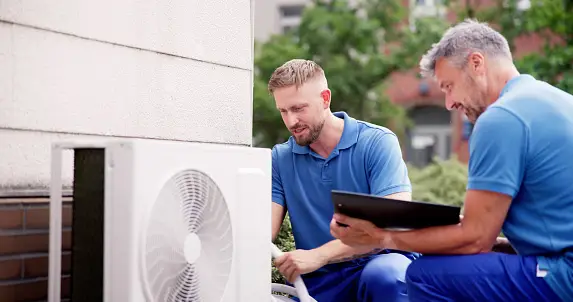
In Florida’s sweltering heat, a functional air conditioning (AC) system is crucial for indoor comfort. However, like any mechanical system, AC units can encounter problems over time. Understanding common AC issues and how to address them can help you keep your system running smoothly and avoid costly repairs. Here’s a guide to some frequent AC problems and practical solutions.
AC Not Cooling Properly
Problem: If your AC isn’t cooling effectively, it could be due to several issues such as a dirty air filter, low refrigerant levels, or a malfunctioning thermostat.
Solution:
- Check the Air Filter: A clogged air filter restricts airflow and can reduce cooling efficiency. Replace the filter if it’s dirty.
- Inspect Refrigerant Levels: Low refrigerant can impair cooling. If you suspect low refrigerant, contact a professional to check and recharge it.
- Test the Thermostat: Ensure the thermostat is set to the correct temperature and functioning properly. Replace the thermostat if it’s faulty.
AC Unit Blows Warm Air
Problem: An AC unit blowing warm air can be caused by issues like a malfunctioning thermostat, incorrect settings, or problems with the compressor.
Solution:
- Verify Settings: Make sure the thermostat is set to “cool” mode and the temperature is set lower than the current room temperature.
- Check the Compressor: If the compressor is faulty, it may need professional repair or replacement.
Strange Noises
Problem: Unusual noises such as grinding, squealing, or banging can indicate mechanical issues with components like the fan, motor, or compressor.
Solution:
- Inspect the Fan and Motor: Loose or damaged fan blades or a failing motor can cause noise. Tighten or replace parts as necessary.
- Check for Debris: Remove any debris from around the AC unit that could be causing noise.
AC Not Turning On
Problem: If your AC unit doesn’t turn on at all, the issue might be related to the power supply, circuit breakers, or electrical components.
Solution:
- Check the Power Supply: Ensure the unit is plugged in and the circuit breaker hasn’t tripped. Reset the breaker if needed.
- Inspect Electrical Components: Faulty wiring or a broken capacitor can prevent the unit from starting. This often requires professional attention.
Water Leaks
Problem: Water leaks around the AC unit can occur due to a clogged condensate drain line or a malfunctioning pump.
Solution:
- Clear the Drain Line: Use a wet/dry vacuum to remove clogs from the condensate drain line.
- Check the Pump: If your system uses a pump to remove condensate, ensure it’s functioning correctly. Replace it if necessary.
Uneven Cooling
Problem: If some rooms are cooler than others, it might be due to issues with ductwork, airflow, or insulation.
Solution:
- Inspect Ductwork: Leaky or obstructed ducts can cause uneven cooling. Seal any leaks and ensure ducts are properly insulated.
- Check Vents and Registers: Make sure all vents and registers are open and unobstructed to allow for even airflow.
AC Unit Short-Cycling
Problem: Short-cycling, where the AC unit turns on and off frequently, can be caused by incorrect thermostat settings, dirty filters, or an oversized unit.
Solution:
- Adjust Thermostat Settings: Ensure the thermostat is set correctly and not causing frequent cycling.
- Replace Air Filter: A dirty filter can lead to short-cycling. Replace it if it’s clogged.
- Check System Size: If the unit is too large for your space, it may need to be replaced with a correctly sized system.
Conclusion
Addressing common AC problems promptly can help maintain your system’s efficiency and extend its lifespan. Regular maintenance, such as changing air filters and clearing the condensate drain line, can prevent many issues. For more complex problems, such as refrigerant leaks or electrical issues, it’s advisable to consult a professional HVAC technician. By staying proactive with your AC system, you can ensure it remains reliable and effective in keeping your home comfortable throughout Florida’s hot months.